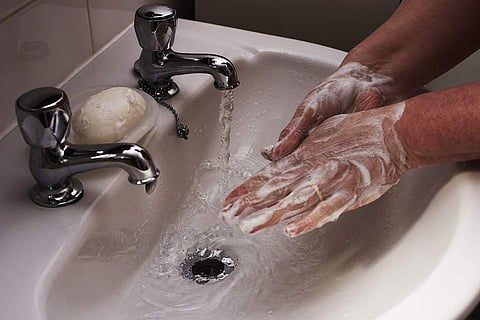

RB, under its flagship campaign, Dettol Banega Swasth India today, launched the Social Return on Investment (SROI) Evaluation Study Report of its successful Dettol School Hygiene Education Programme at ISC-FICCI Indian Sanitation Conclave 2020. The virtual discussion focused on the need for an integrated approach to WASH in schools in the times of COVID-19.
The link between hygiene and public health has now been clearly established. Yet, proper handwashing practices remain elusive in much of the country. Even before a meal, 69.9 per cent of rural India still washes their hands without soap. Another 15 per cent only wash their hands with water after defecation. The Dettol School Hygiene Programme was envisioned as a step towards improving poor sanitary practices in schools, homes, and communities, by promoting behavioural changes.
"We at Dettol BSI believe in the idea of health & hygiene for all. Dettol School Curriculum in partnership with our development partners was introduced to drive behaviour change among young children based on age appropriate behavioural nudges. Our aim is to emphasize on the need to facilitate a sanitized environment & to create the importance of WASH in preventing the spread of infection amongst children," said Ravi Bhatnagar, Director External Affairs and Partnerships, Reckitt Benckiser Health AMESA.
"There is a tremendous amount of work done by corporates, NGOs and citizens to work with the Government. However, to address the current situation we all must come together to fight this pandemic. A standalone intervention receives a lower social return on investment, however with an integration of interventions which is more nutrition-sensitive including water, right to nutrition and diarrhoea management, social return on investment touches the ratio of 1:47. This creates a bigger impact on society. It's time we look at hygiene, sanitation and health together and not separately to tackle this pandemic," he added.
"In addition to the monetary investment, corporates like RB also bring their ability to successfully implement and their need to measure outcomes that we see in the SROI report of the Dettol School Hygiene Education Programme. The fact that we can measure every 1 rupee invested has delivered 33 rupees of social value is a huge multiplier when looking at actual impact on ground," said Naina Lal Kidwai, Chair, India Sanitation Coalition.
"Through the hygiene programs in school, we have seen role reversal of children and parents where children have taken up the role of teaching the right way to wash hands. They have become an agent of change in communities in spreading awareness about health and hygiene. We believe that hygiene curriculum should be part of the daily school day. As we have seen through the pandemic, the only way to protect ourselves from diseases is by washing hands," said Tinni Sawhney, CEO, Aga Khan Foundation.
